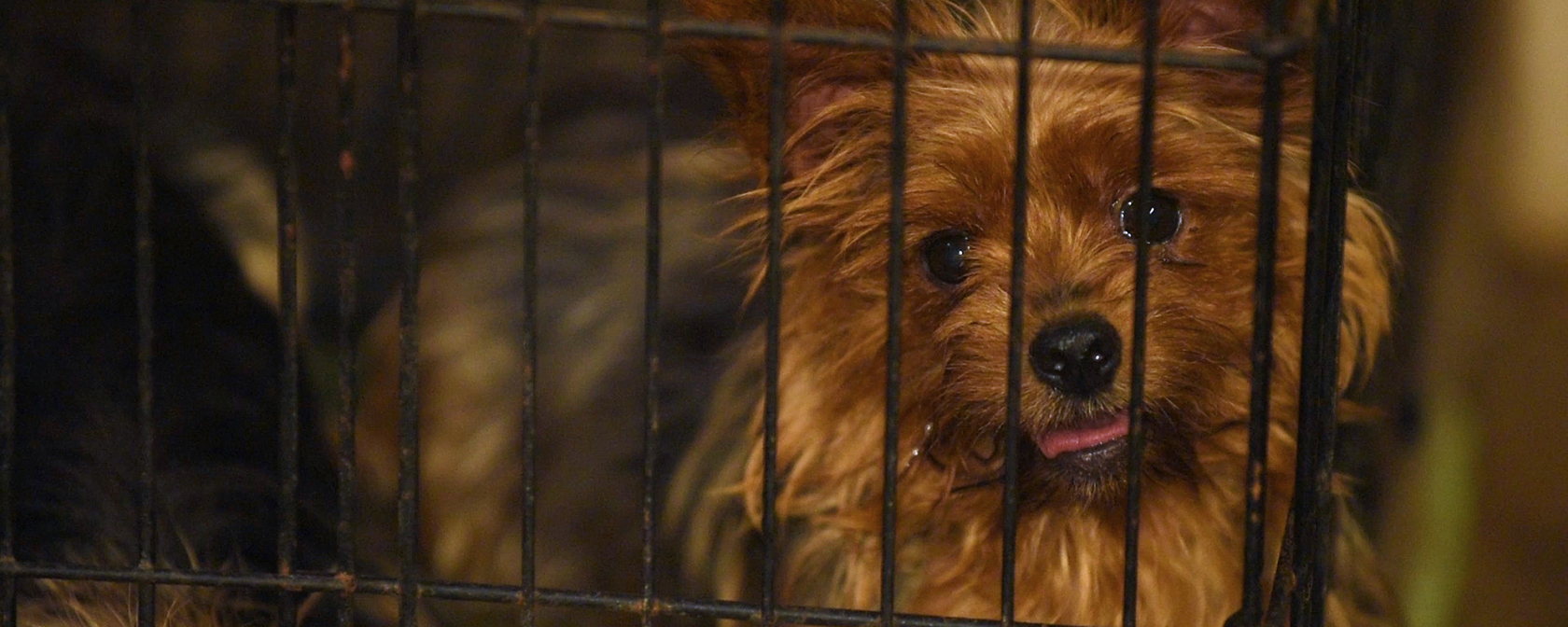By Sara Amundson and Kitty Block
In a country where political tempers often run hot, agreement can seem incredibly rare. But, regardless of party affiliation, a consensus is emerging that our companion animals should be treated with basic decency—and this is not how kitten and puppy mills treat dogs and cats.
While we advocate for the improvement of living conditions for companion animals in massive breeding facilities, in the end we also understand that there can be no such thing as a humane kitten or puppy mill. There is nothing humane about using dogs and cats as breeding machines, birthing litter after litter until their bodies are exhausted, nor is there anything humane about separating young puppies and kittens from their mothers to be carted from these massive facilities to pet stores where they frequently suffer from health issues.
Nor are there any political vantage points from which this sort of treatment of animals is justified. Consequently, we are seeing inspiring action from a broad spectrum of elected officials in red, blue and purple states across the U.S. on the puppy mill issue. These encouraging signs increasingly show that eradicating kitten and puppy mills and ending the sale of mill dogs and cats in pet shops is an issue that crosses political lines:
- Last week, Florida Gov. Ron DeSantis issued a press release that celebrates the action he took in his state to protect animals from the puppy-mill-to-pet-store pipeline.
- California, Maryland, Maine, Washington, Illinois and New York have all passed laws that prohibit the sale of dogs and cats in pet stores, a major blow to massive breeding facilities that seek to sell their animals in these markets. These wins for companion animals wouldn’t have been possible without bipartisan support. For example, in Illinois, the House sponsor was a Republican; the New York bill passed with most Democrats and Republicans supporting it in both chambers; and Maryland’s bill passed the legislature with bipartisan support and was signed into law by a Republican governor. Finally, a bill to make Oregon the seventh state to prohibit the sale of puppy mill puppies in pet shops has passed the Oregon House of Representatives and is pending in the state Senate.
- In addition to state laws prohibiting the sale of dogs and cats in pet stores, 450 localities across the U.S. have passed ordinances doing the same.
- At the federal level, we are advocating for the passage of the Puppy Protection Act, a bill that would require improvements in the living conditions for dogs languishing in puppy mills. The bill was recently reintroduced by key Republicans and Democrats in the U.S. House of Representatives, and is already receiving vast, bipartisan support. Moreover, we ended the 117th Congress with 223 members on all sides of the aisle supporting the Puppy Protection Act, proving again that this is an issue everyone can support.
All this progress portends a more humane future for dogs and cats. That said, there is still a lot of work to be done, both in securing passage of new humane pet store laws and in defending the progress we’ve already made against bills that seek to undermine these laws.
Anyone supporting bills that undermine progress in the fight against puppy mills is motivated by the pet store lobby and not by what’s beneficial for consumers or animals.
Everyone can be empowered to speak out for better treatment companion animals:
Kitty Block is CEO of the Humane Society of the United States.
